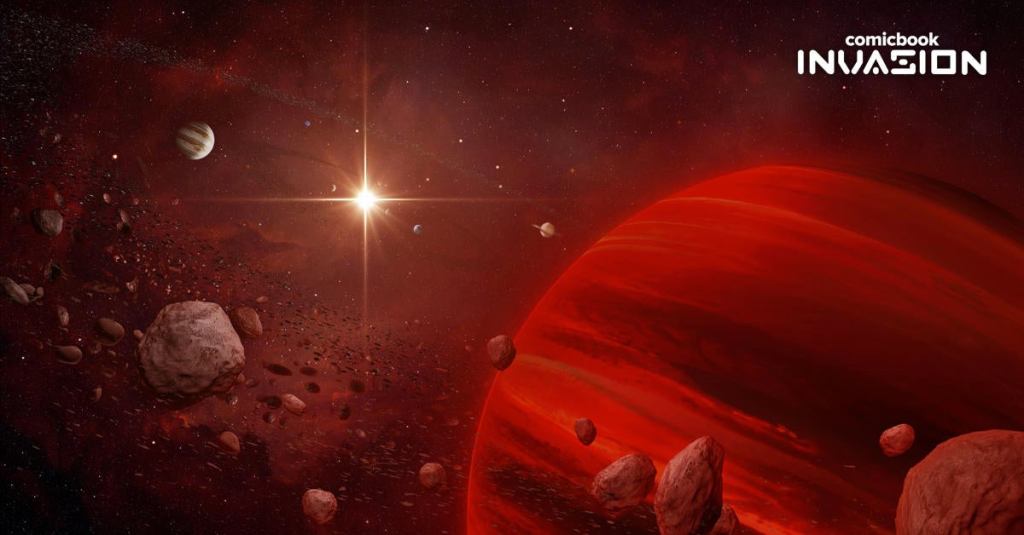The concept of extraterrestrial life has suddenly become less taboo with even government officials putting focus on the investigation of UFOS and UAP — unidentified aerial phenomena. Days after Congress held its first public hearing on the matter in half a century, a new study was released suggesting alien motherships could be littering the galaxy…maybe.
Videos by ComicBook.com
A new study published in the International Journal of Astrobiology earlier this year suggests alien civilizations could potentially attach themselves to any number of the 70 or so free floating planets in the Milky Way as they migrate throughout the galaxy.
“Almost 10 years ago, when reading about discoveries of free-floating planets, I thought of a hypothetical scenario of a free-floating planet approaching the Solar System,” physicist Irina Romanovskaya told Vice’s Motherboard in support of the study. “There are no traffic lights in the Galaxy. If the Solar System happens to be in the way of some free-floating planet, the planet will not stop at the red light. It will fly right through the Solar System. The probability of such an event would depend on how many free-floating planets exist in our Galaxy, which at that time remained to be estimated.”
Free floating planets, of course, are those celestial bodies not tied to a certain story and have no true orbit around a host. At any given point, scientists think there could be upwards billions of such planets across the known universe, and with the technology we have at this point in time, there’s virtually no way to track if an alien civilization may have already attached itself to a planet.
“This increases the chance that some advanced extraterrestrial civilizations, if they exist, might hitch a ride on free-floating planets,” Romanovskaya added. “Which is why I call such hypothetical civilizations Cosmic Hitchhikers.”
One of the ways evidence could be obtained, Romanovskaya says, is with NASA’s new James Webb Telescope, which will soon return its first full-resolution images.
“NASA has already sent spacecraft to travel to the outskirts of the Solar System and beyond,” she concluded. “Perhaps, in the not-so-distant future, another spacecraft will be sent to the remote regions of our planetary system to study any newly discovered objects that might be captured free-floating planets.”
The full study can be ready here.
Cover photo by Tobias Roetsch/Future Publishing via Getty Images









